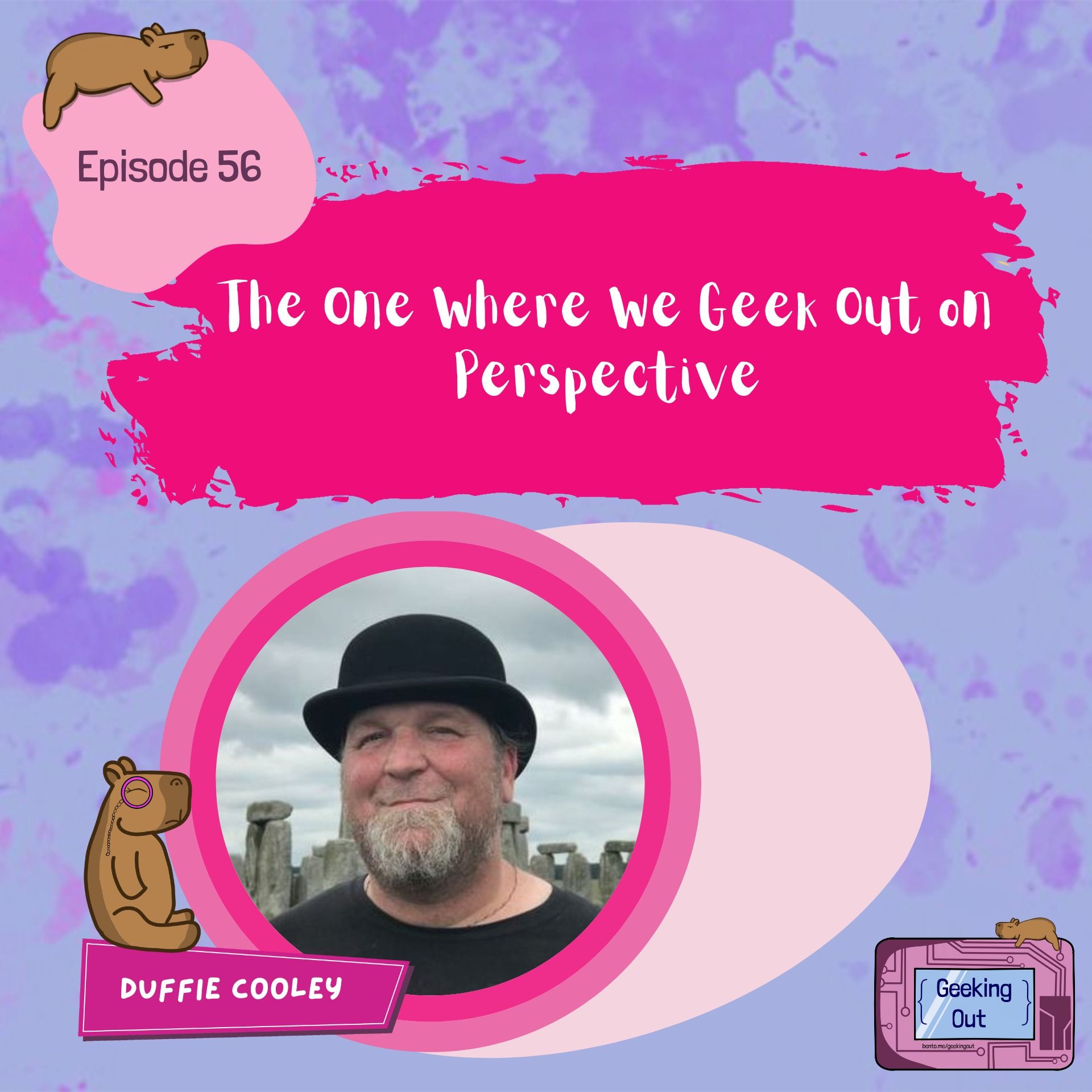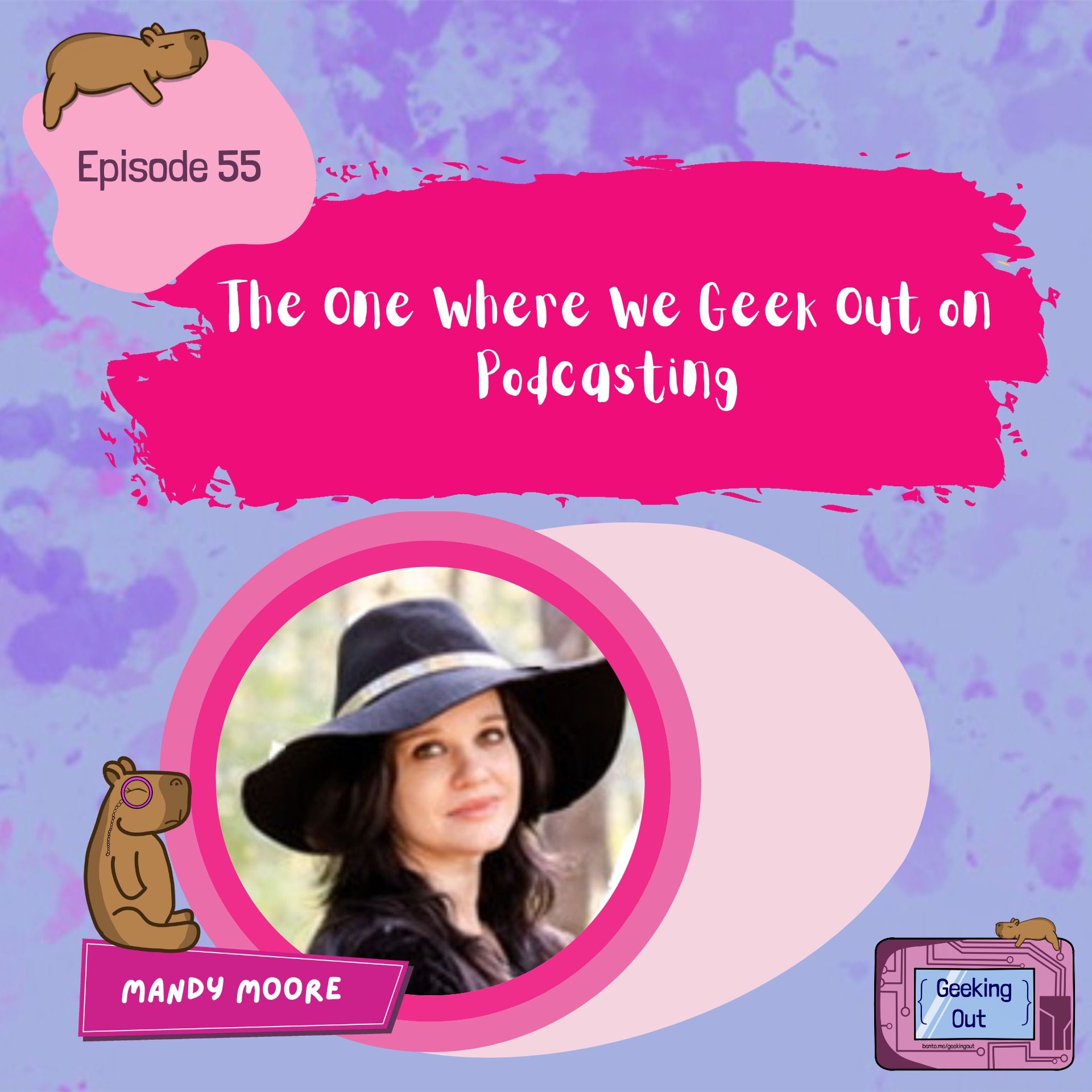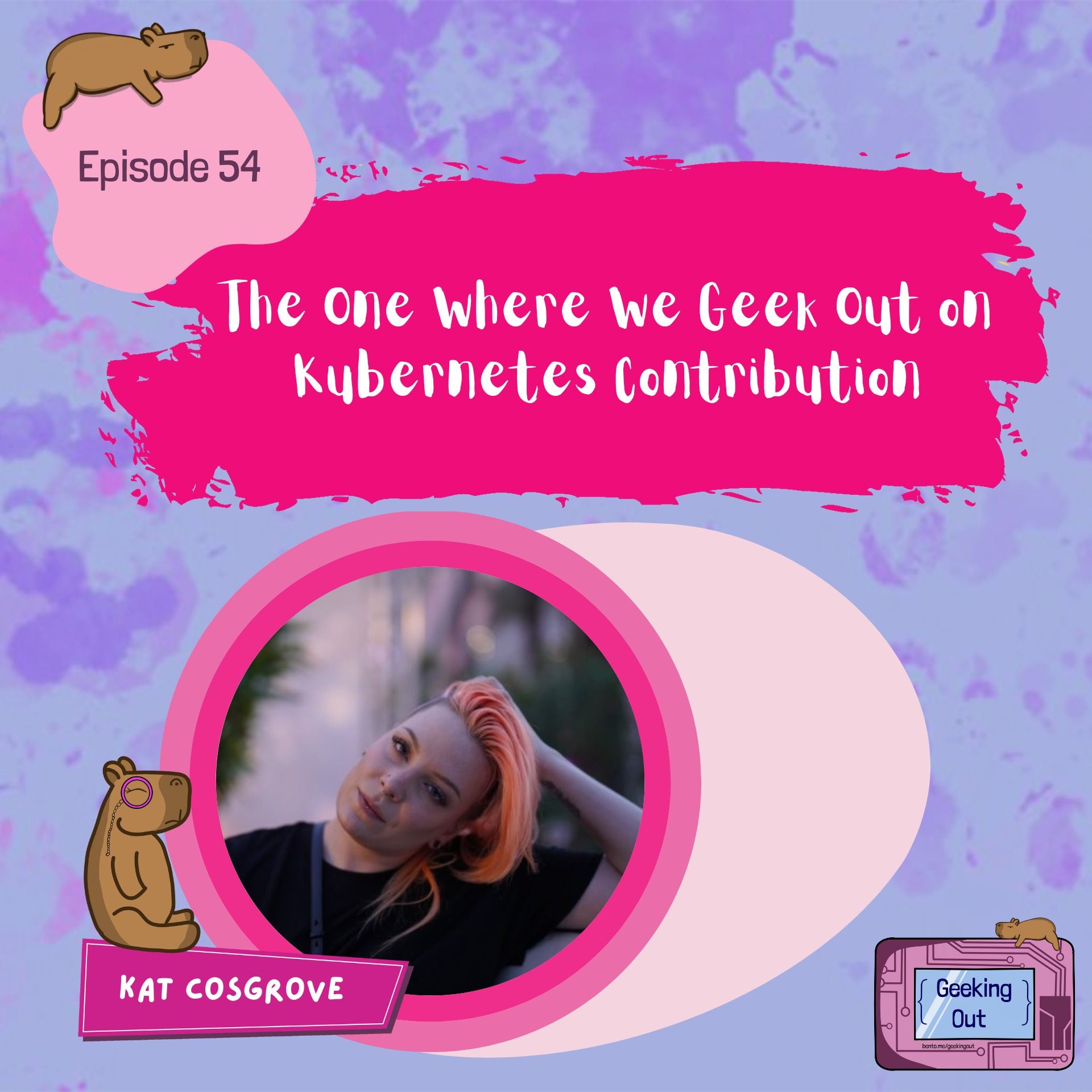The One Where We Geek Out on Managing Burnout with Denise Yu
Description
Key takeaways:
- Job hopping at a young age can help you better understand what you like and what you're good at
- Doing meaningful and impactful work keeps us engaged and not bored at work and hating our lives
- Burnout happens more often in tech than we care to admit, and one way to cope with it is by doing an activity that you're not good at
- Normalizing talking about mental health at work gives others a safe space to take care of their own mental health
- Tips for concentrating: activities with low cognitive load can help you concentrate better on primary activities
- Discovering your own leadership style and what works for you helps you become a successful manager
- Jumping off the IC track too early to get into management can hurt you as a manager in the long run
About our guest:
Denise is an Engineering Manager at HashiCorp and a professional margin-scribbler. She's been using sketchnotes and comics for the last few years to make concepts in engineering more accessible and fun.
Find our guest on:
Find us on:
- All of our social channels are on bento.me/geekingout
- All of Adriana's social channels are on bento.me/adrianamvillela
Show notes:
- Rails Active Record Query Interface
- Spaces vs Tabs debate
- Video game music can help with attention span
- Audioslave (supergroup)
- Broken Social Scene (supergroup)
- Neha Batra (GitHub)
- MySpace
- Book: Work Won't Love You Back
Transcript:
ADRIANA:
Okay. Hey, fellow geeks. Welcome to Geeking Out, the podcast about all geeky aspects of software delivery DevOps, observability, reliability, and everything in between. I'm your host, Adriana Villela. Coming to you from Toronto, Canada. And geeking out with me today is Denise Yu of HashiCorp. Welcome, Denise.
DENISE:
Thanks so much, Adriana. Very excited to be here.
ADRIANA:
I'm excited too. And where are you calling from?
DENISE:
I'm also in Toronto. We're neighbors.
ADRIANA:
Yes. Yeah. I always say on the podcast, I always get very excited when I have a fellow Torontonians on. We need, you know, we need to get some good representation in Canada.
DENISE:
Yes, yes, we are only 10% of the Cana... Actually, no, I think I think the GTA is 20% of the Canadian population.
ADRIANA:
AV: Oh, damn. That's. Yeah.
DENISE:
I mean, we are there's a lot of us, actually.
ADRIANA:
There are a lot of us. Well, with that, I think this is a great segway to get into our lightning round questions.
DENISE:
Let's do it.
ADRIANA:
Ready... Okay, let's let's see how lightning they are. They may or may not be. I roll with it. Okay, first question, are you a lefty or a righty?
DENISE:
I am right handed.
ADRIANA:
Okay. Do you prefer iPhone or Android?
DENISE:
I have an iPhone. I don't really know how to use Android anymore, but every time I try to use my friend's Android phone, I end up calling her mom by accident. I just don't know how to use it. So I'm going to go iPhone for the, like, basic reason: I know how to use an iPhone.
ADRIANA:
And it's funny because my my mom, had, an Android for a hot minute because even though my dad had an... he had an iPhone for work. That was his primary cell phone. He decides he's going to buy my mom a freaking Android. My mom was computer illiterate. Like, who would any, like, any panic. Like, if she hit the wrong thing on a phone and it took her to a different screen, it would be. Like, oh my God, my phone is broken. I'm like. So she’d call me for tech support on her Android. And it's like, okay, if I if I'm there physically with your phone, I can probably figure it out. But like you calling me, I have an iPhone. I have no frickin’ clue what's going on here.
DENISE:
Yeah. Yeah. Well, it's not just her. I consider myself pretty, pretty tech literate. And I also struggle.
ADRIANA:
Yeah, it's a bit of. It's a bit of a maze. I ended up buying her an iPhone eventually because I'm like, oh, I can't deal with this. You have an iPad get... Let's get you an iPhone, mom.
DENISE:
Yeah, exactly. Exactly.
ADRIANA:
Yeah. All right, next question. Do you prefer Mac, Linux, or Windows?
DENISE:
Oh, you know, I don't do that much development anymore, because I'm a manager now, but, for development, I think my brain is just most attuned to using Macs. I've developed in a Linux environment before, but, just having to think about every piece of software that you want to download does get in the way. I think. Yeah. So yeah, I'm going to I'm going to go with the, the boring answer here and say, Mac, I'm best at using Macs for development and otherwise, these days.
ADRIANA:
All right. Down for it, down for it. Yeah. Linux is fun. If you're, like, fiddling around, I find, I mean, I, I've, I've interviewed people who are like, yeah, Linux.
DENISE:
Yeah.
ADRIANA:
You know, I've had fun with Linux, but like, sometimes when all I need is for the damn thing to work...
DENISE:
Yes, exactly.
ADRIANA:
Yeah. Yeah. So. Okay. Next question. What's your favorite programing language?
DENISE:
Ooh. I trained as a Ruby developer, so I feel like Ruby still has a place near and dear to my heart. I think Ruby is the most fun language to do little toy projects and do prototyping in. It's still like my brain's first programing language. So I think if I'm going to start a new project and I don't want to think too hard about what frameworks I'm going to use or like, if I want to just get straight to the part where I start solving the problem and writing tests and everything and seeing something working, I'm still going to choose Ruby for that today.
ADRIANA:
That's cool.
DENISE:
Yeah. I like Ruby. I don't actually, I haven't used that many programing languages. I'm not one of those polyglot people. So I've used JavaScript. Because I was a web developer for a lot of my career. Picked up Golang a couple of years ago. That was pretty fun. It's a good, nice, fast language. Very opinionated. Which is. Which is nice.
ADRIANA:
I appreciate that about Go.
DENISE:
Yeah. And I've done a couple of projects in Go. Everything in HashiCorp is in go. So I think, like, Go literacy is a great skill to have, especially if you work in the infrastructure ops space today and you're looking to build tools because there probably is already a Go package for the thing that you're trying to do that you can just import. I was a Rails developer for a bunch of years. Worked at GitHub, did some Rails at pretty serious GitHub scale for a little while. So I know that, sometimes when you have like a huge monolith and especially if you're trying to coordinate with like tons and tons and tons of different teams, and you want to make sure that every, you know, every single query that goes out is performant. Sometimes, like using you typically people use like Ruby in production. They're using Rails in production underneath that. So I think like some of the challenges I've seen with Rails at that kind of scale is, active record is just so magical. It's like the main thing you have to use when you're interfacing with with SQL databases, but when it goes wrong, it goes really wrong. And you spend a lot of time untangling the magic of active record. So that's my only kind of caveat. Like if I'm working on a real production system today, I think like there are definitely a number of scenarios where doing everything in Ruby, through everything in Rails, can slow you down at a certain point. But I think that probably is true for any programing language. code base large enough, there just is more coordination and more context switching that you're going to deal with, especially if it's, you know, ideally, it's not just you working on this model at this, you at like a couple dozen or a couple hundred other people.
ADRIANA:
Yeah, that's a very fair point, especially when you're working at such a large organization, which is like very jarring when you go from like small organization to large one where you're like, oh my God, I have to coordinate with all these people.
DENISE:
Yeah. Like my first job was in Rails and it was me and three other develo
























